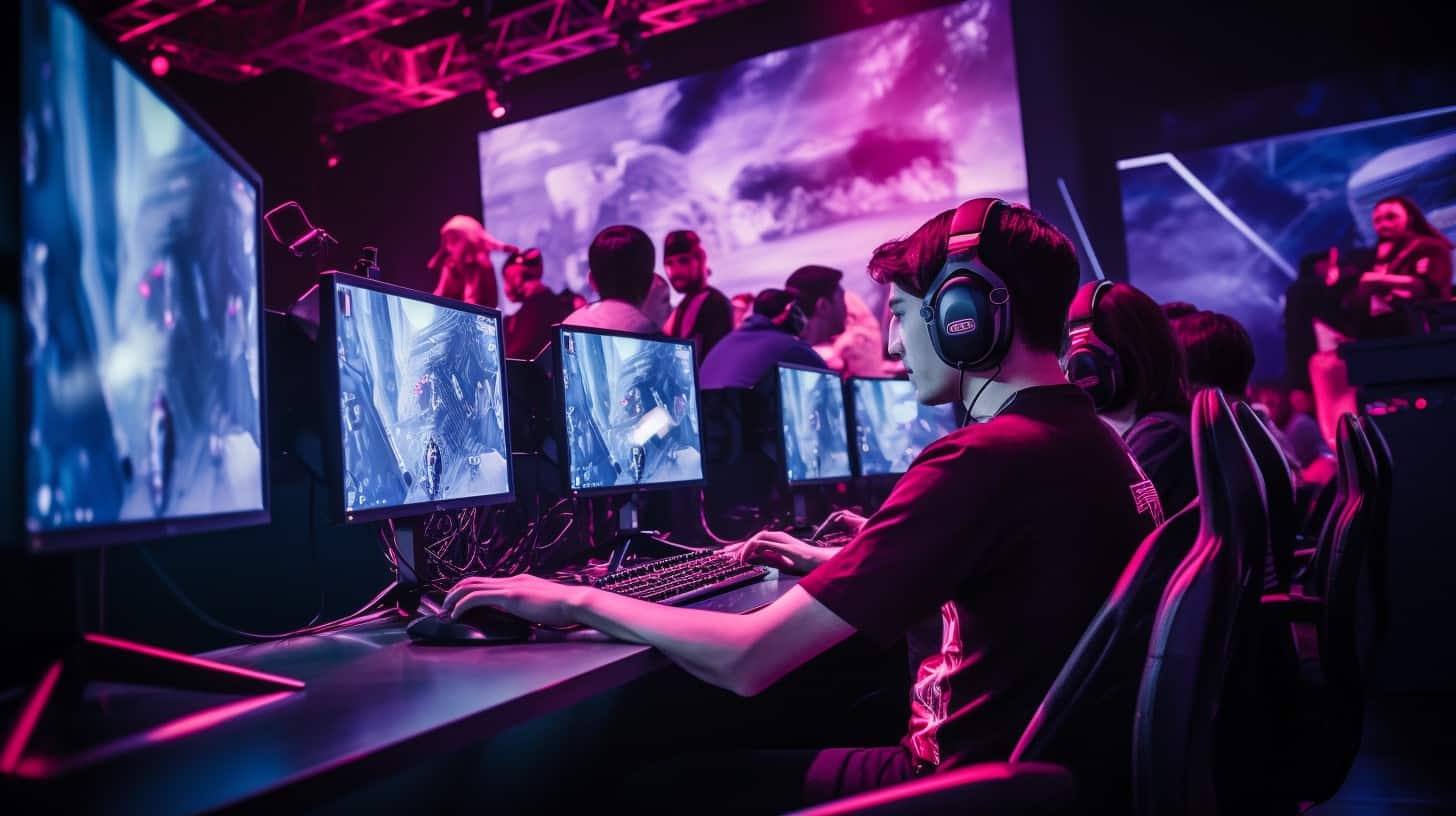Ever fantasized about captaining your own esports squad to glory? That desire, brimming with challenges and excitement, resonates deeply with me. Through my journey of discovery, I’ve uncovered a path that leads to triumph.
In this article, we’ll meticulously unpack the process of creating an esports juggernaut from the ground up. Get ready to tap into the spirit of competition and unlock the full potential of your dream team!
Key Takeaways
Starting an esports team means picking a popular game, finding skilled players, and making a business plan.
Costs for equipment, travel, and salaries are important to plan. Winning games can bring in money from prizes and sponsors.
A strong brand with a cool name and logo helps fans remember your team. Marketing online is key to getting attention.
Contracts keep things fair for players by setting rules about pay. Having a home base for the team helps with practice and building teamwork.
Practice schedules should mix gaming, breaks, watching videos to learn more, and physical exercise to keep everyone sharp.
Table of Contents
Understanding Esports
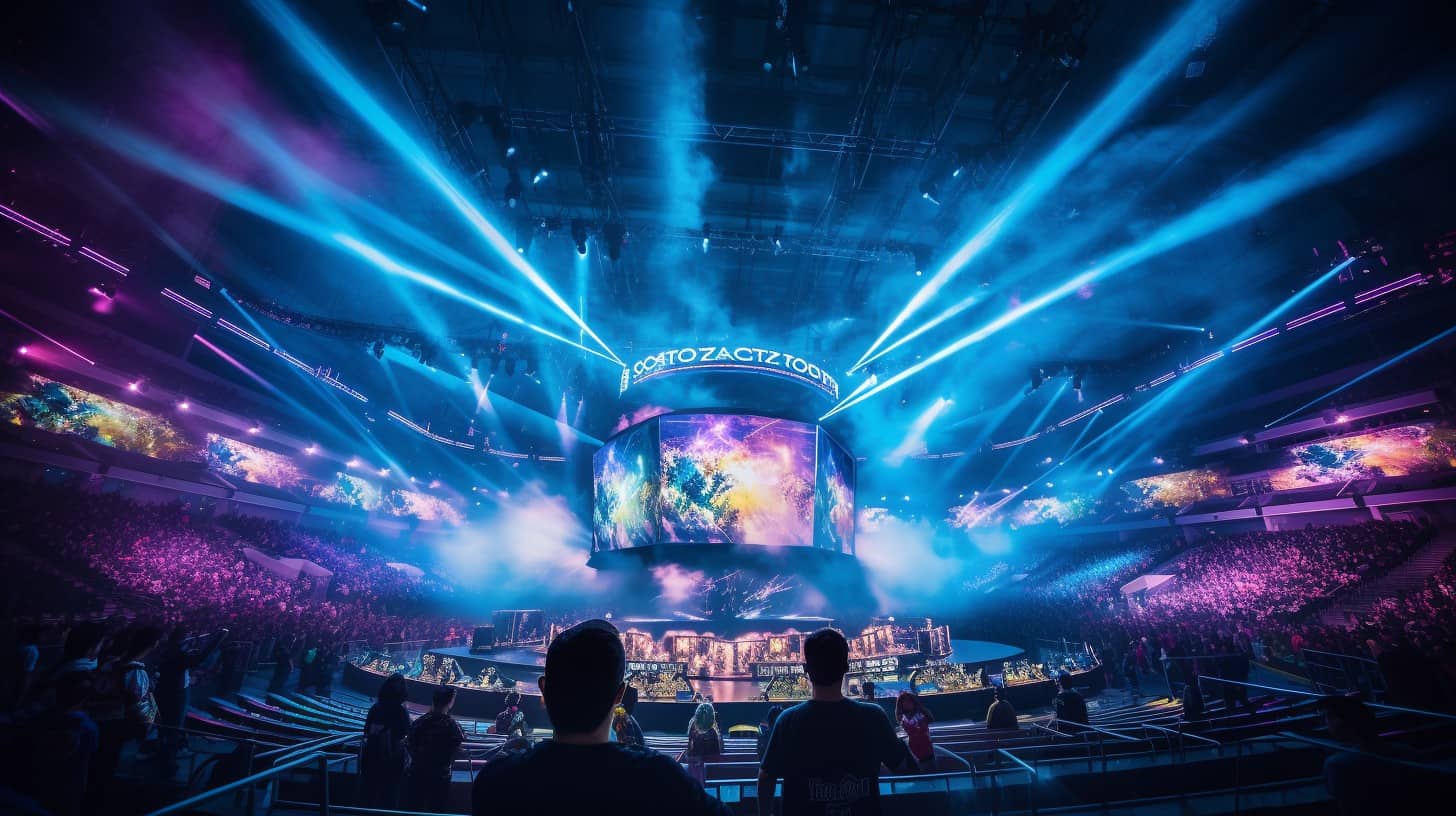
Esports is competitive video gaming at a professional level. Think of it like the major sports leagues in the United States, but instead of playing basketball or football, teams face off in popular games such as League of Legends and Dota 2.
Just like traditional athletes, esports players need serious skills and lots of practice.
This world has its own big events too. Teams can win huge prizes at esports tournaments and they get support from sponsors. They also make money by sharing what they earn with their team members when fans buy tickets or watch online.
In this digital sport, building a strong team that plays well together is key to success.
Initial Steps in Starting an Esports Team

Kicking off your journey into the esports realm starts with laying a solid foundation; think of it as constructing your digital dojo where strategy and ambition meet. Market analysis, deciding on your team’s core focus, and financial planning are pivotal steps that will set the stage for all the game-changing moves you’ll make next.
Market Research
I start by looking into what’s hot in the esports industry. Are folks crazy about first-person shooters or are they all about MOBAs? Knowing which games have a strong following tells me where to focus my team-building efforts.
I search for trends and talk to gamers, peek at social media sites, and even check out what game developers are working on next.
Next up, I dive deeper into data. How much do top teams earn? What games get big sponsorships? Understanding the business side, like potential earnings from tournaments or streaming platforms like Twitch, helps me make smart choices for my own future esports team.
It’s all about figuring out which games can keep players AND fans hooked – because no one wants to train hard for a game that might lose its spark overnight!
Deciding on the type of esports team
Picking the right type of esports team matters a lot. Think about what games you love and where your skills shine. Some people are great at fast-paced fighting games, while others have a talent for strategy in games like Hearthstone or League of Legends.
You’ll want at least five players to start with, so make sure you choose a game that’s popular enough to find teammates who are just as passionate as you are.
Starting local is smart too. It helps save money and creates strong bonds between players. Local teams can get support from nearby businesses and maybe even play in school leagues, working up to bigger tournaments over time.
Look around your community—maybe there’s already interest in esports that can help your team grow strong together!
Creating Budget and Forecasting Revenue
Starting an esports team isn’t just about gaming skills; it’s a business endeavor that requires careful financial planning. Just like traditional gambling activities, including those on betting sites in Australia, where real-money rewards can be enhanced with value-added packages like betting bonuses and promotions, esports now offers financial incentives for players. That means, as a team owner, you need to think about creating a solid budget and forecasting potential revenue with precision.
| Expense Category | Details | Estimated Cost |
|---|---|---|
| Gaming Equipment | High-performance PCs, peripherals, and gaming chairs | $10,000 – $15,000 |
| Team Headquarters | Rent and utilities for a dedicated space | $1,500 – $4,000/month |
| Player Salaries | Compensation for team members | $2,000 – $5,000/player/month |
| Travel Expenses | Costs for attending tournaments and events | $1,000 – $3,000/event |
| Marketing | Promoting the team and building a fanbase | $500 – $2,000/month |
| Legal and Administrative | Contract drafting, business registration, and other legalities | $1,000 – $3,000 |
| Revenue Source | Details | Projected Income |
| Tournament Winnings | Income from championship victories | Variable |
| Sponsorships | Deals with gaming and non-gaming brands | $1,000 – $10,000/deal |
| Merchandising | Sales of team apparel and accessories | $500 – $3,000/month |
| Streaming Revenue | Income from streaming platforms and content creation | $200 – $5,000/month |
| Franchising | Joining leagues that offer revenue sharing | $10,000 – $100,000/year |
Crafting a meticulous budget and forecasting likely revenue is vital to the sustainability of your esports team. With costs ranging from high-tech gaming equipment to travel and marketing, balancing the books needs a strategic mindset. On the flip side, potential earnings from tournament wins, sponsorships, and merchandising can offer a lucrative return on investment.
Now that we’ve got the financial roadmap outlined, it’s time to focus on the team building process. Let’s dive into picking your game and scouting the talent that will represent your brand.
Team Building Process
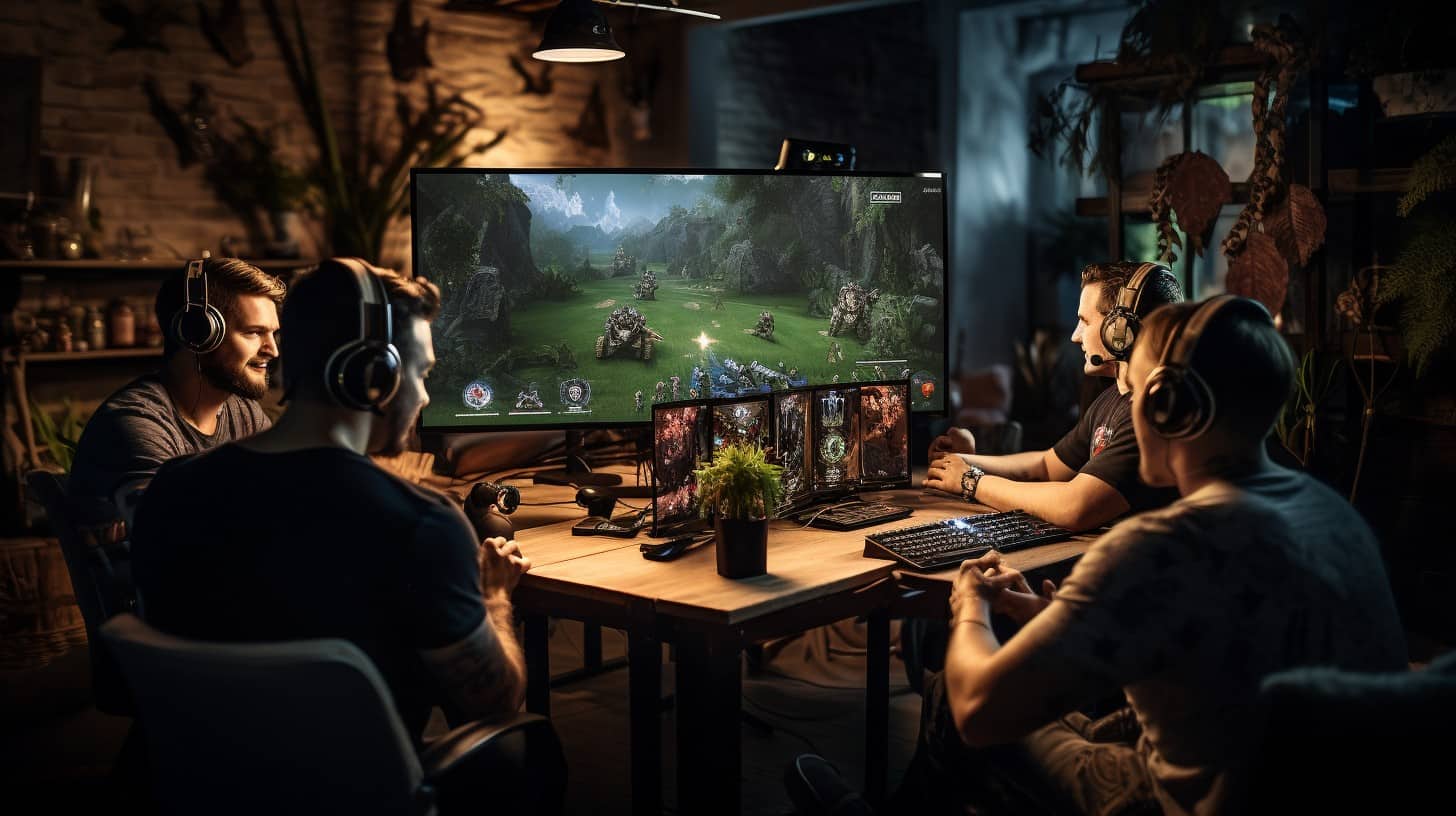
Crafting a winning esports team is akin to assembling a puzzle; it’s about finding the right pieces that fit together to create a dynamic and competitive force—dive deeper with us as we explore how you can scout for talent and mold individuals into champions.
Picking Your Game
I want to share a key step with you: choosing the game your esports team will focus on. It’s like picking a sport for an athletic team; you’ve got to go with what excites you and matches your skills.
Think about games that are not just fun but also make money gaming, such as League of Legends or Overwatch. These games have huge esports leagues already in place, which means there’s a pathway for your new team to grow and succeed.
It’s smart to start with one game at first. This lets us get good at running a team without stretching ourselves too thin. Look into multiplayer heavy-hitters like Dota 2 or Counter-Strike: Global Offensive if you’re aiming for something with a big following.
But remember, owning an esports team is running a business, so pick a game that has room for your team to enter the scene and make an impact.
Scouting Talent
Now that you’ve chosen your game, it’s time to find the right players for your esports team. Scouting talent is a big step because these players will represent you in competitions.
- Look at local gaming events. You may find good players who want to join an esports team.
- Use online platforms where gamers show off their skills. They often stream their games, and you can see how well they play.
- Watch warm-ups and practice sessions. This tells you about a player’s dedication and skill.
- Notice how players handle winning or losing. You want people who are good sports, no matter what.
- See how they work with other gamers. Teamwork is super important in esports.
- Ask around in the gaming community. Someone might know a player who is perfect for your team.
Holding Tryouts
I’m going to tell you about holding tryouts for your esports team. It’s a key step to finding the right players.
- Plan your tryout dates and make sure to spread the word everywhere gamers might see it – social networking apps, gaming forums, and local game shops can be good places.
- Set clear goals for what you’re looking for in players. Think about skill level, teamwork, and how they communicate with others.
- Create a fair tryout process that lets everyone show their best skills. Use different games or challenges that relate to the main game your team will play.
- Watch how players handle both winning and losing. Their behavior can tell you a lot about how they’ll fit into your team.
- After tryouts, talk to the top gamers again. This is when you ask more questions and see if they really match your team’s vibe.
- Remember to take notes during tryouts so you can compare players later. Details often make the difference in choosing who makes the cut.
- Give feedback to those who tried out but didn’t make it this time. Positive words can keep them motivated, and they might come back stronger next time.
Building the Business Side of Your Esports Team

Diving into the esports industry requires a solid foundation in business acumen; constructing your team’s business framework is critical for sustainability and growth. Let’s focus on the steps to transform your competitive squad from a passionate collective to a profitable entity, ready to attract investment and conquer the tournament scene.
Acquiring Investors
Getting money to support your esports team is a big deal. You want to find investors who believe in your vision and are willing to put their money behind it. Think about what makes your team special, and be ready to explain how you’ll win games and attract fans.
Make sure you have a solid business plan that shows how the team will earn cash from things like winning tournaments, getting sponsors, and sharing revenue.
I talk straight with potential investors about what’s in it for them. It’s not just geeky or nerdy fun; I show them data about how gaming can be good for the brain and why esports are taken seriously as a real sport nowadays.
Investors look for teams that have thought things through – from player contracts where pay could depend on performance or time played, right down to practice schedules that set us up for winning those big championships like the League of Legends Championship Series.
It’s all part of making them feel confident they’re backing the next big thing in esports!
Enrolling in Tournaments
I’m going to share with you how to get your esports team into tournaments. It’s a big step, but it can really pay off for your team.
- Look for local tournaments to start. These are great for new teams. You can make a name for yourselves and meet other players.
- Check the game you’re playing has tournaments. Not all games have big events, so pick one that does.
- Sign up on time. Tournaments have deadlines. Don’t miss out because you were late.
- Read the rules carefully. Every tournament is different. Knowing the rules can mean winning or losing.
- Prepare your team. Practice before the tournament. This makes your team better and more confident.
- Get the right gear ready. You don’t want something breaking during a match!
- Playing in tournaments gives your team experience. The more you play, the better you get.
- It gets people to know who you are. If people see you play well, they’ll remember your team.
- Winning brings in cash for the team.
- Doing well might get companies to sponsor you.
- Competing teaches teamwork and strategy.
- Your players learn how to handle pressure and stay focused.
- You’ll become part of the esports world.
- Meeting other teams and making friends is part of the fun.
Branding and Marketing Your Team
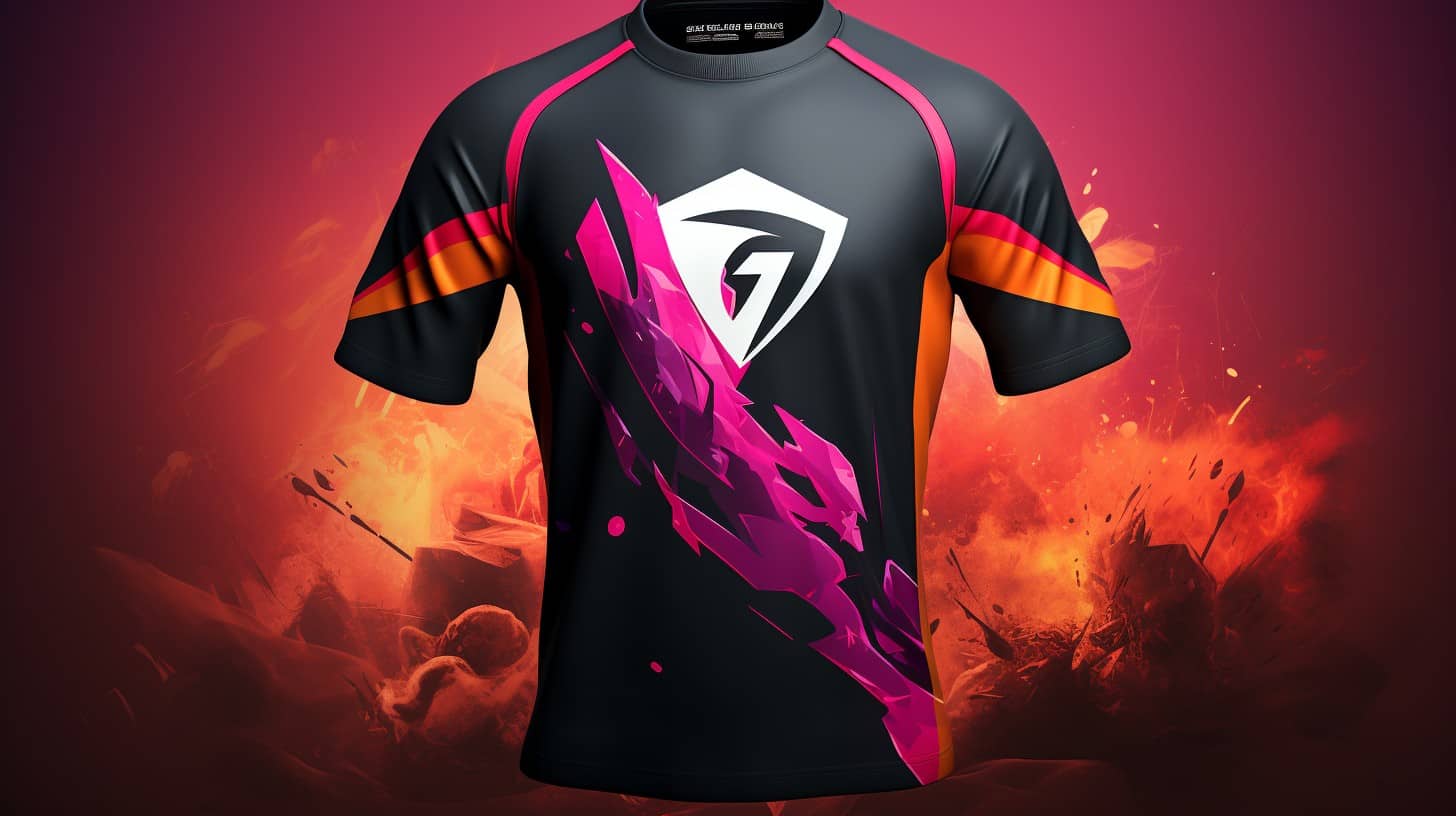
Understanding the power of a solid brand, we’ll delve into how to craft an identity for your esports team that resonates with fans and sponsors alike. Establishing a strong online presence, fostering community engagement, and utilizing strategic marketing can set your team apart in the rapidly evolving esports arena.
Deciding on a Name
Picking the right name for your esports team is a big deal. It’s more than just a cool tag; it’s how fans will know you and cheer for you. You want something unique that sticks in people’s heads, kind of like how “Mario Kart” can make you think of fun races with friends.
Your name should match your team’s spirit and be easy to say. Think about some awesome words that describe what your team is all about – maybe it’s being smart like those “nerdy hobbies” or brave like heroes in an “Overwatch League.” Get creative!
A kick-butt logo goes hand-in-hand with your name, too. Make sure they look good together because this combo will be like the face of your esports squad. They’ll show up on everything from jerseys to social media pages, helping spread the word about who you are far and wide! Now that we’ve got our name set up, let’s talk branding – another exciting step toward building your dream team!
Building a Brand
Building a brand for your esports team is like crafting a powerful story that fans can connect with. You want something that sticks in people’s minds, so they think of your team when they talk about gaming.
A great logo matches the name you choose and sets the tone for everything else. It appears on jerseys, social media, and anywhere your team shows up—like a flag that everyone rallies around.
You also have to spread the word about your team far and wide. Creating an online presence is crucial since gaming lives on the internet. Start with a cool website where fans can learn about your players and see when you’re competing next.
Share updates on platforms where gamers hang out to build excitement around what you’re doing. This way, geeky hobbies become epic battles worth following!
Essential Elements of an Esports Team
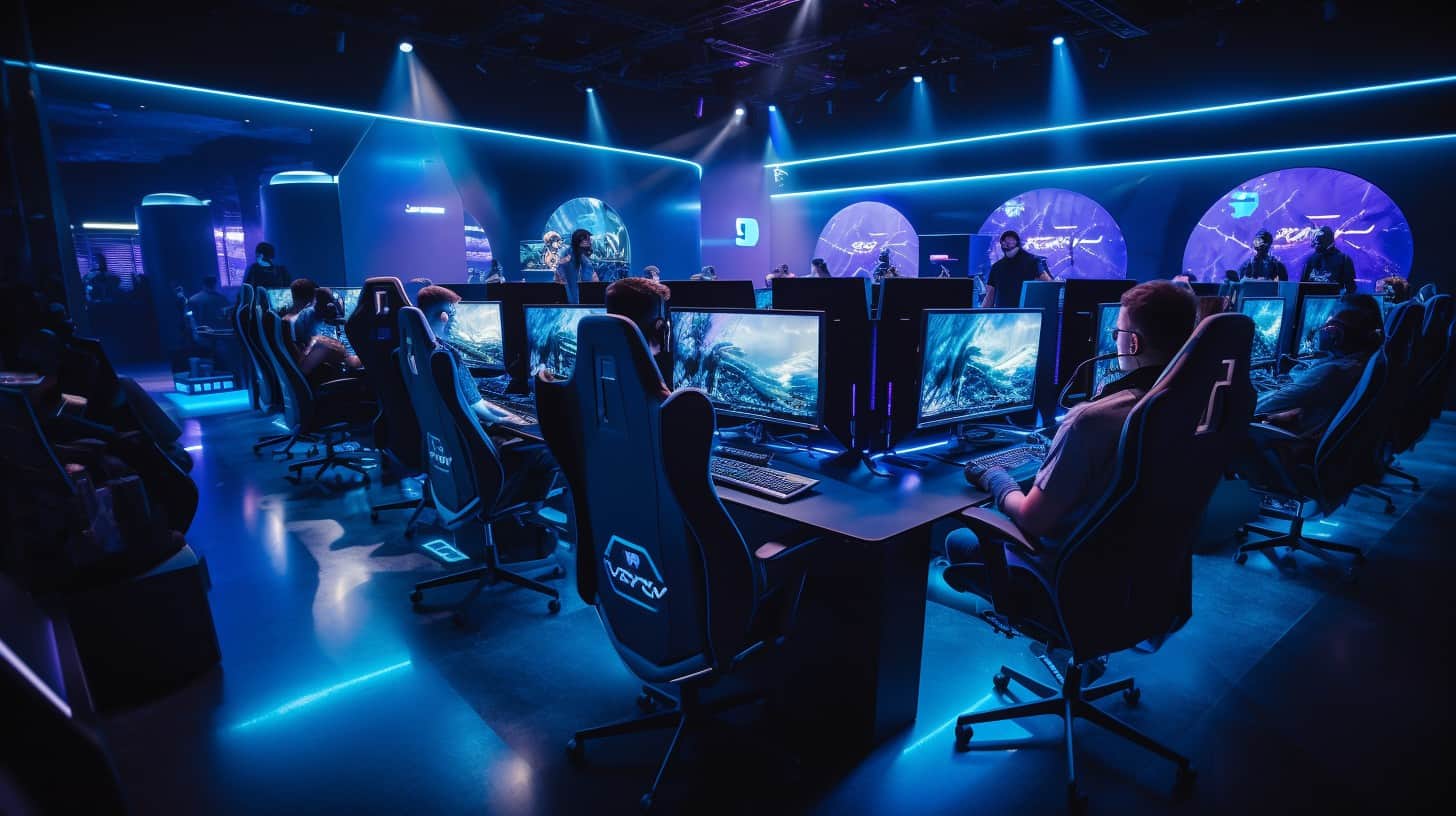
Diving into the world of competitive gaming isn’t just about assembling a group of skilled players; it’s also about creating a robust infrastructure to support them. Let’s explore what underpins a successful esports team beyond the surface, from legalities and logistics to training regimens that forge champions.
Player Contracts
Having player contracts in place is kind of like a safety net. It makes sure players get financial support while they focus on playing their best. You wouldn’t want your team members worrying about money when they should be practicing their moves, right? Contracts can offer pay based on how well players do, or just pay them for the hours they put into training and competing.
It’s super important to write down all the rules about money and support in these contracts. This way, everyone knows what to expect. Think of it like setting up rules for a game – you need to know who gets what and when if you win or do a great job during a match.
No surprises means no hard feelings later on, so your esports team stays strong and focused on winning!
Team Headquarters
Once you’ve got your player contracts sorted out, it’s time to find a home for your team. A good team headquarters is more than just a place with computers and chairs. It’s where the magic happens – where training turns into winning, and players become a family.
Starting locally can make this part easier. Look for a space that fits your gaming gear and gives everyone enough room to play comfortably. This spot will be where you practice for hours, work on strategies, and boost each other’s skills.
It helps build morale and makes sure everyone feels like they’re part of something special – something more than just playing games together. Plus, having a steady base keeps the team focused and ready to take on any challenge that comes their way.
Gaming Equipment
Moving from setting up our team headquarters, let’s talk about gaming equipment. Good gear can make a big difference in esports. Your team will need high-quality computers that can handle fast-paced games.
These aren’t just any computers; they should be powerful enough for esports battles.
You might face challenges getting all the equipment at first. It could be smart to ask players to bring their own stuff or reach out to companies for help. Some schools already have strong computers that students use in classes like engineering or business.
Think about using these machines for your esports team too.
Logitech G eSports Solutions offers gaming peripherals you could consider buying for your athletes—things like mice, keyboards, and headsets built especially for gamers. Remember, if you’re careful with money and get creative, providing top-notch gear won’t feel impossible!
Practice Schedule
A good team practice schedule keeps us on track. It includes time to play, breaks, team activities, watching game videos, and even exercise. This mix helps our brains stay sharp and our bodies ready for action.
We set up regular times to meet. Some of us may still be in school or have jobs, so we find hours that work for all. The goal is to get better together by learning from each other and pushing each other hard in practice sessions.
Just like any sport or after-school activity you might join at school, it’s about teamwork and getting ready for the big games ahead!
Ready To Start Your Esports Team?
Starting your esports team is like setting out on an adventure in the gaming world. You’ve got a plan to follow and goals to reach. Remember, picking the right game, finding players who share your passion, and building a strong brand are key steps.
Keep practicing and connecting with local sponsors as you grow. Your journey begins now—get ready to lead your team to victory!
FAQs About Starting An Esports Team
What is an esports team?
An esports team is a group of players who play video games together in competitive gaming, like sports teams do with physical games.
How can I start my own esports team?
To start an esports team, find people who love gaming as much as you do and pick a game like PUBG or Pokémon Unite to focus on. Get better by playing and learning together!
Do I need to be really good at video games to make an esports team?
You don’t have to be the best right away! With practice, learning from mentors, and getting motivation from your teammates, your skills can grow.
Can being part of an esports team help me learn anything new?
Yes! Being part of an esports team can teach you about teamwork, technology (like cybersecurity), and STEM subjects and even boost your self-esteem while having fun.
Where can we get support for our new Esports Team?
Look for support in places like schools where teachers and librarians might want to help with game-based learning, or reach out online through e-commerce websites that cater to geeky hobbies.
